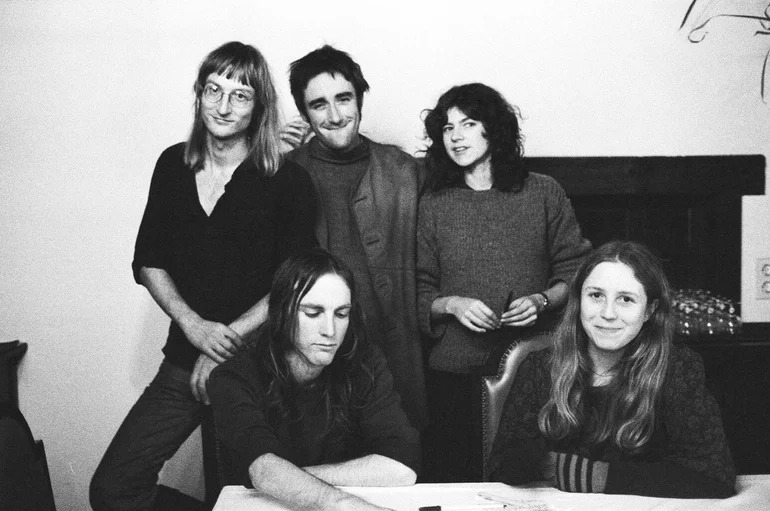Unconventional and unapologetically avant-garde, Henry Cow stood defiantly apart from anything that came before or after their arrival. Emerging from Cambridge University in the late sixties, they were a boundary-pushing collective which refused to conform. Their sound was a volatile fusion of free improvisation, modern classical, progressive rock, and sharp political commentary.
At the heart of what would become known as Rock In Opposition (RIO), Henry Cow helped launch a movement which resisted the commercialism of the mainstream music industry. Though some historians link them to the Canterbury Scene, Henry Cow occupied a far more radical space musically and ideologically.
The band's work is dense, often discordant, and fiercely cerebral. Albums like Unrest (1974) and In Praise of Learning (1975), a bold collaboration with avant-pop ensemble Slapp Happy, are brimming with jagged time signatures, jarring mood shifts, and lyrics deeply rooted in Marxist thought.
Guitarist Fred Frith and drummer Chris Cutler were pivotal in shaping the group’s abrasive yet intricately constructed sound. They forged a sound was profoundly challenging and certainly defied tradition.
Rock In Opposition wasn’t a genre but became more of a movement. A loose alliance of European bands too experimental for traditional labels, RIO was a rebellion against commodification and a declaration of artistic independence. The original RIO roster, Henry Cow (UK), Univers Zero (Belgium), Etron Fou Leloublan (France), Samla Mammas Manna (Sweden), and Stormy Six (Italy), spanned a vast range of styles, but all shared a commitment to innovation and resistance.
By contrast, the Canterbury Scene which home to much more popular and celebrated bands like Soft Machine, Caravan, Gong, and Egg, channeled similar jazz and classical influences, but with a relatively lighter touch. Where Canterbury acts embraced complexity with charm, Henry Cow wielded it like a weapon. In that family, they were the radical sibling; the black sheep with a manifesto.
More than fifty years on, Henry Cow’s legacy still feels vital. Their art was never just about sound, but a confrontation, a call to think differently spawned from their art. In their uncompromising dissonance lies a stark and powerful beauty. It’s the sound of true opposition and it remains timeless.
ZR



